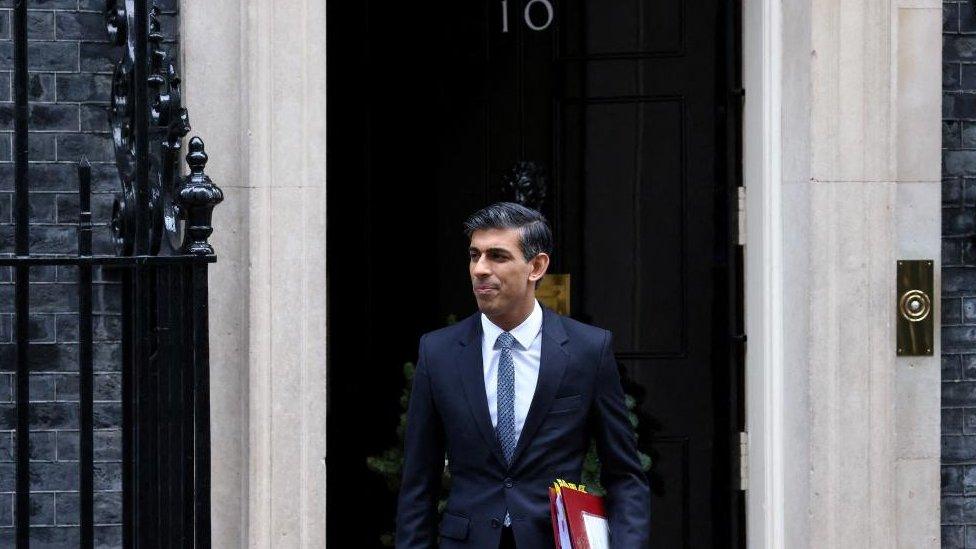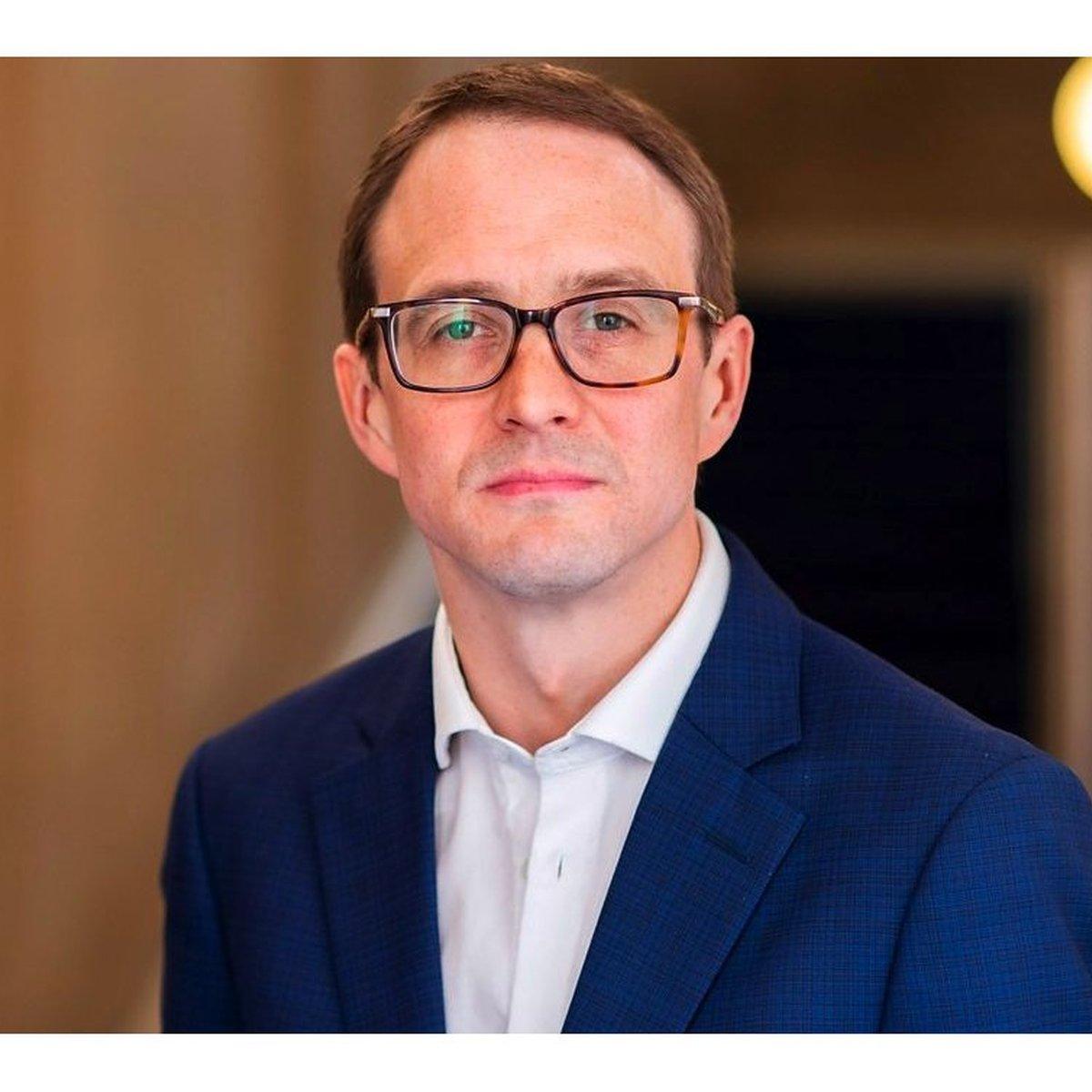Rishi Sunak's speech will set out ambitions for year ahead
- Published
- comments

Politics, like so many of us, is spluttering back towards its regular rhythm this week, ahead of Parliament returning next.
So political leaders are trying to tap into that early January window of reflection, renewal, and that all too often rather brief collective desire for some sort of self-improvement.
Today it is the prime minister's turn to set out his ambitions for 2023. Then tomorrow it will be the Labour leader Sir Keir Starmer doing the same thing.
What we'll get from Rishi Sunak is an attempt to speak to some of his broader interests beyond the day to day firefighting of government.
Those around Mr Sunak say his instinct is that to have more than a few priorities at any one time is to have no priorities at all, and the situation in the NHS is uppermost in his mind.
And so he will address the importance of dealing with backlogs in the health service.
Problems getting an ambulance, waiting times for planned operations and social care in England are all likely to be referred to later, as critics demand immediate answers to what is widely seen as a crisis in the NHS this winter.
But it won't be the only theme in his speech - widely trailed was the idea to ensure all young people in England up to age of 18 are studying maths in some form.
It appears to be an aspiration rather than a policy idea that is fully developed - the precise mechanics for making it happen are not clear and the government acknowledges it wouldn't be possible to implement before the general election.
The PM's argument is that a growing number of jobs rely on mathematical ability and the education system needs to change to reflect that.
But critics, including the Labour Party and the Liberal Democrats, point to a failure to recruit enough maths teachers.
Labour say ministers have failed to recruit enough maths teachers in every year of the last decade bar one.
On the provision of childcare to pre school children in England, I understand there is nothing imminent coming from the government, but the prime minister accepts it is a difficult issue for many families.
There is irritation in Downing Street at the intervention of the former Prime Minister Liz Truss - with those around her saying the abandoning of her plans to expand the provision of free childcare and allow nursery staff to look after a greater number of children is "economically and politically counterproductive".
No10 sources point out Ms Truss's plans were not fully developed and would be very expensive - particularly the expansion of free childcare.
And yes, like much of Liz Truss's agenda, it never developed beyond the embryonic, let alone reaching the toddler stage.
But this is a pointed intervention from her, after a few months of near public silence since she left Downing Street.
Expect to hear more from her publicly this month or next, as she carves out a new role after the humiliation of her brief stint as prime minister.
How will she calibrate her public interventions? How helpful or otherwise will she be to Rishi Sunak? And how much attention will she generate, given her disastrous time in the highest office?
The issue of childcare though is a fascinating one - because it matters to millions of families, and plenty of Conservatives fret that they have nowhere near enough to offer the under 40s.
We saw a similar row blow up before Christmas when it comes to house building, we see it again now with childcare.

Are you affected by issues covered in this story? If you'd like to get in touch you can email: haveyoursay@bbc.co.uk, external.
Please include a contact number if you are willing to speak to a BBC journalist. You can also get in touch in the following ways:
WhatsApp: +44 7756 165803, external
Tweet: @BBC_HaveYourSay, external
Or fill out the form below
Please read our terms & conditions and privacy policy
If you are reading this page and can't see the form you can email us at HaveYourSay@bbc.co.uk, external. Please include your name, age and location with any submission.
